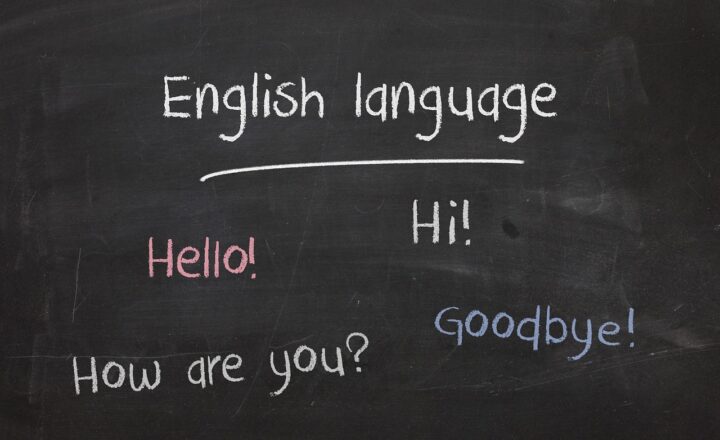Why Understanding Global Political Theories Matters in Today’s Interconnected World
November 16, 2024

In an age marked by globalization, rapid technological advancement, and an unprecedented interconnectedness of societies, understanding global political theories has never been more crucial. From tackling issues like climate change, trade disputes, and human rights to navigating the complexities of international relations and global governance, political theories provide the frameworks necessary for informed discourse and effective policymaking.
1. The Importance of Political Theories
Political theories encapsulate a range of ideologies and perspectives that explain how power is distributed in societies and how it can be changed or maintained. Understanding these theories enables individuals and leaders alike to decode political events and make sense of the behavior of states and non-state actors on the global stage. Some key political theories include:
- Realism: Focuses on the competitive and conflictual side of international relations, where states act primarily in their interest for survival and power.
- Liberalism: Emphasizes cooperation and interdependence among states, arguing that international institutions can foster peace and collaboration.
- Constructivism: Highlights the role of social constructs, identities, and norms in shaping international relations, emphasizing that realities are constructed through social interaction.
- Marxism: Analyzes global politics through the lens of economic class relations and social conflict, often focusing on the influence of capitalism and imperialism.
These theories not only illuminate the motivations of various actors but also provide the analytical tools necessary to evaluate the implications of their actions.
2. Globalization and Its Challenges
Globalization has intertwined the fates of nations in ways previously unimaginable. Issues such as trade agreements, immigration policies, and international security threats require a nuanced understanding of political theories. Here are some reasons why these theories matter even more in a globalized world:
- Policy Formulation: Policymakers need to grasp different theoretical perspectives to craft effective responses to global challenges. For instance, a climate treaty might require a liberal approach focused on collaborative frameworks, while geopolitical tensions may necessitate a realist perspective prioritizing national interests.
- Crisis Management: Access to diverse political theories equips leaders with the ability to assess crises contextually. For example, during conflicts, understanding the realist paradigm may reveal the underlying power dynamics at play and suggest realistic negotiation strategies.
- Predictive Value: Political theories allow us to analyze trends and predict potential future outbreaks of instability or cooperation on the global stage. This foresight is essential for international organizations and governments to mitigate risks effectively.
3. Bridging Cultural Divides
Understanding global political theories also facilitates bridging cultural divides by fostering dialogue and collaboration among states with differing ideologies. By appreciating the theoretical frameworks that underpin political actions, countries can:
- Engage in Constructive Diplomacy: Recognizing that other nations may base their policies on different ideologies helps avoid simplistic narratives and promotes mutual understanding.
- Address Global Issues Collectively: Many challenges, such as climate change and terrorism, transcend borders, necessitating cooperative frameworks grounded in overlapping political concepts. Understanding differing approaches can facilitate more effective partnerships.
- Foster Empathy and Tolerance: Engaging with diverse political theories cultivates an open-minded approach, allowing individuals to empathize with different political realities, which is key in promoting peaceful coexistence.
4. Political Theories in Practice
To illustrate the practical applications of political theories, let’s consider recent examples:
- The Paris Agreement: This global treaty on climate change reflects the principles of liberalism, emphasizing the role of international cooperation in addressing shared challenges.
- U.S.-China Relations: Here, realism is often highlighted, as both nations navigate their competitive interests while occasionally seeking constructive dialogue through economic partnerships.
- The Rise of Populism: Candidates across various nations have leveraged Marxist ideas in their rhetoric to critique capitalist structures and appeal to disillusioned voter bases, showing a shift in political landscapes worldwide.
By applying these theories to current events, we can foster a deeper comprehension of the mechanisms driving global affairs.
5. The Role of Education in Understanding Political Theories
Education plays a pivotal role in disseminating knowledge of political theories, nurturing future leaders and members of society who can engage with these concepts critically and constructively. Integrating political theory discussions within educational curricula promotes:
- Critical Thinking: Students learn to analyze complex situations through different theoretical lenses, helping them articulate informed opinions about global affairs.
- Informed Citizenship: A population aware of political theories is more likely to engage in civic activities, contributing to more democratic participation and accountability.
- Global Awareness: Education that addresses global political theories fosters awareness of how interconnected factors influence domestic and international politics.
Ultimately, a well-educated public equipped with an understanding of global political theories paves the way for more thoughtful, informed discussions that can shape policies and ultimately the world we live in.
Conclusion
In conclusion, understanding global political theories is vital for navigating the complex web of international relations. As the world becomes increasingly interconnected, these theories will serve as crucial guides for individuals and leaders alike to analyze, predict, and respond to the myriad challenges we face.
Embracing the diverse perspectives offered by political theories cultivates a more informed, empathetic, and responsive global society, equipping us to tackle issues that transcend borders. As we engage in an ever-evolving political landscape, let us remember that the foundations for progress lie in our ability to comprehend and learn from the diverse political paradigms shaping our world.







